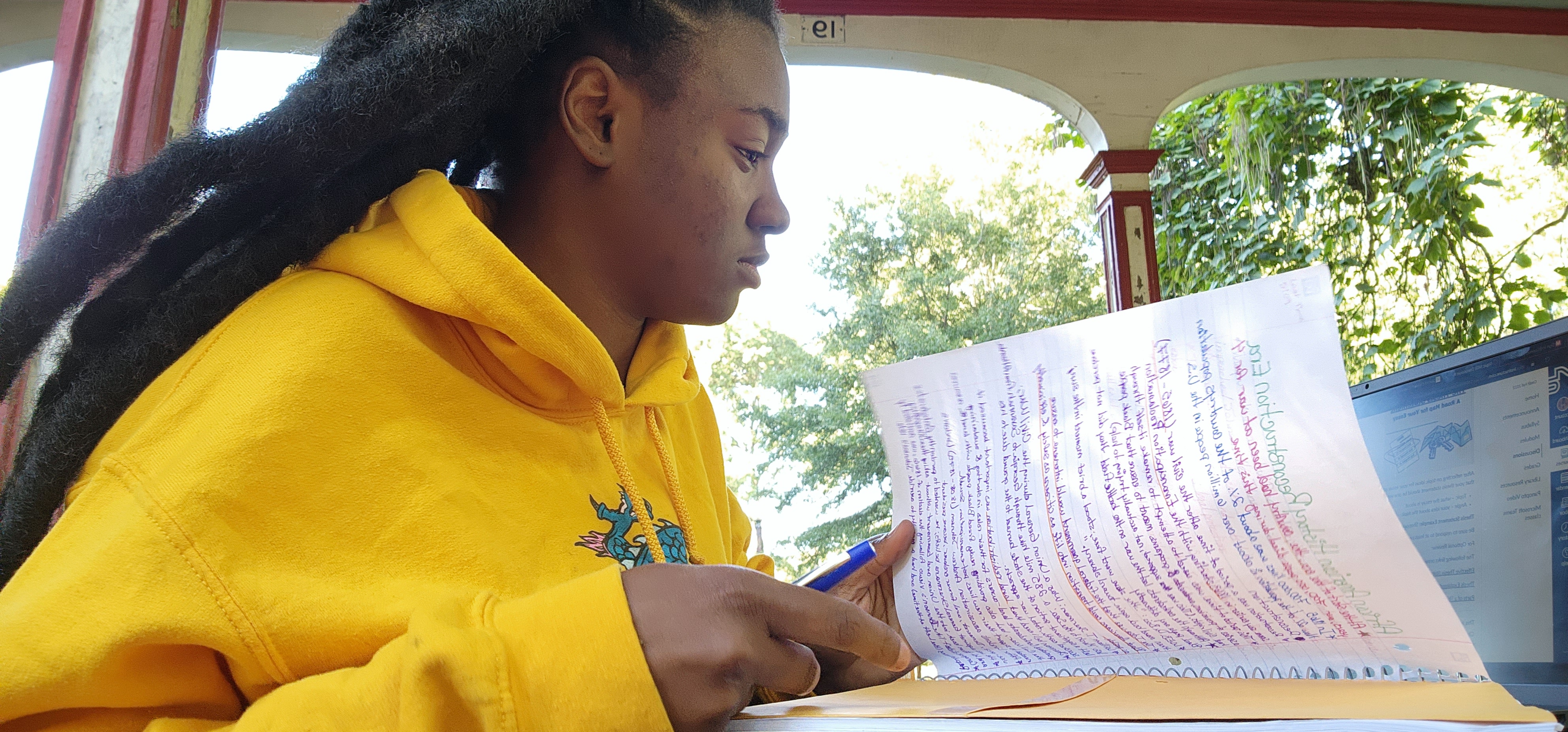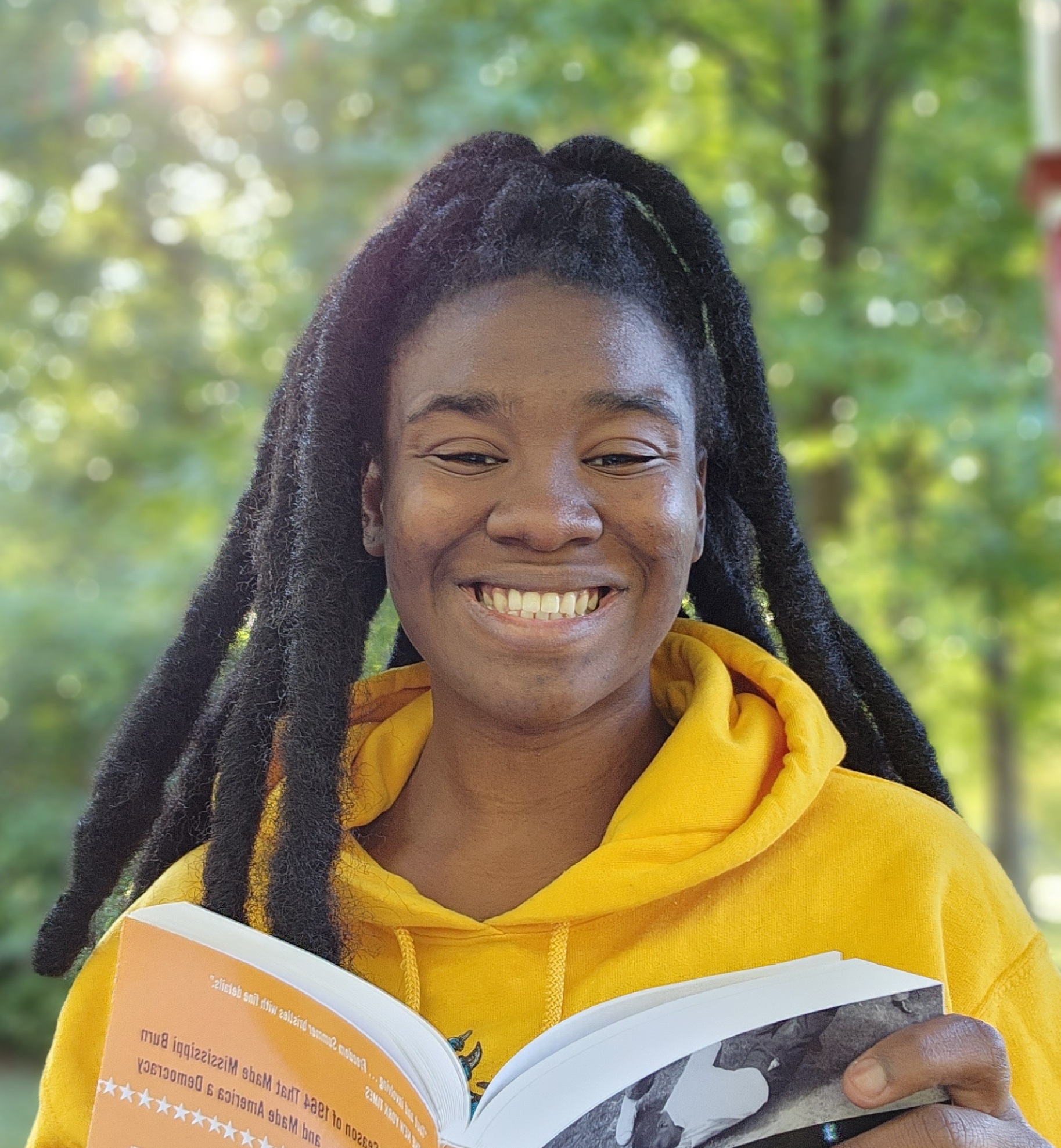Harmon's Path Forward Now Has More Options
Monday, October 10, 2022
Topics:

First-generation students are those whose parents don’t have a college degree. Oftentimes, these students are also the first ones in their families to ever set foot on campus as a student. Nationwide, one-third of all college students in the U.S. are first-generation students.
As classes get underway this fall, St. Louis Community College is spotlighting four first-generation students. And while every story is unique, students in this series continue to prove that they have what it takes to overcome obstacles and earn their college degree.
This is the fourth of four stories in the series.
About the only stability in Bryana Harmon’s life has come from that which she has created.
Her biological father stayed busy raising his other children in another home. Her biological mother signed over her parental rights when Harmon was about nine. She lost her legal guardian and her housing when she was 16.
It’s no wonder she found high school served little more than a means to an end and dropped out of the traditional classroom setting for an online option.
“I was able to work at my own pace,” Harmon said. “I stayed at home, did my classes, submitted my work.
“I had a lot going on in my personal life. I was taking care of myself financially and in all types of ways. I worked part time and had to go to school, and then I had my own home to take care of. I had to cook and clean. I was tired.”
Harmon earned her high school diploma in 2020 – it reads Gateway STEM High School. She worked for a couple of more years before realizing the stability she created for herself had limits. She would only be able to get certain jobs and ascend only so far.
She wanted more for herself. She wanted more for her future family. She wanted to be the first family member to graduate college.

Though she’s not decided on what she plans to do with her degree, Harmon knows why she wants to earn one.
“It’s nice being the person assisting my immediate family in the sense of generational wealth,” Harmon said. “Building a career. Building a path for me to make sure the family before me and those who took care of me, as well as the family that’s coming after me, are going to be OK. They’re going to be able to make the step forward, and I’m providing a lifestyle that I see as worthy for myself and those around me.”
Breaking the Cycle
It didn’t take long for Brooks Harwood to see that drive in Harmon. The two got to know each other while Harwood served as youth coordinator for South City Church. It wasn’t Harmon’s home church, but a friend invited her to some of the youth events, and over time she confided more and more to Harwood, who now serves as a campus pastor at the University of Houston.
Harmon considers Harwood as her mentor and the two have stayed in touch even after he moved to Texas in 2018. They share similar backgrounds in that their childhoods weren’t exceptionally stable and certainly not what either of them wanted for themselves as adults.
But the drive to get away from that experience only goes so far, Harwood said. There needs to be altruistic reasons to work hard and break the cycle, and Harmon seems to have plenty of those.
“She’s unusual,” Harwood said. “She’s scheduled and on time and really wants to do well. She wants to be able to change. She’s willing to ask for help. She’s willing to get counsel. She’s humble. She’s willing to learn. She’s really smart.”
Harmon’s choice to go to college isn’t lost on the family. As the oldest of eight children between her mother and father, she’s a role model.
She’s the one her siblings look up to; the one her cousins turn to with questions; the one who the family believes will achieve more than what they had ever considered doing.
And with those lofty expectations comes absolutely no sense of pressure. Not from her family, at least.
“People around me, they’re very supportive of my decision. If I choose not to finish, they’d completely understand because it’s not for everybody,” Harmon said. “This is something strictly for me. For me, myself and I. It is extremely important and imperative that this gets done because this is something I want for myself.”
It won’t be easy. College never is, nor should it be. She began with three classes at the start of the semester and added a fourth class during the 12-week session that started in mid-September. Not a light load, but not overbearing either.
Figuring It All Out
Harmon faces enough challenges, many of which students don’t.
Not only does Harmon have a household to run, a relationship to foster and a car to maintain – she recently installed an air conditioner compressor on her own – but she also continues to work 40 hours per week. She works for Express Scripts as a customer service representative, helping ensure customers receive the correct medicine and the most cost-effective prescription their insurance allows.
And she doesn’t want to just squeak by with passing grades. She wants to excel.
“I’m really trying to figure out good time management,” Harmon said. “So here I am doing full-time college, full-time work and then also trying to find downtime for myself. It’s a bit stressful.
“I’m OK with it, because I know the goal in mind, but I’m not going to pretend I’m doing great because I’m not,” Harmon added. “I’m doing OK. I’m figuring it out.”